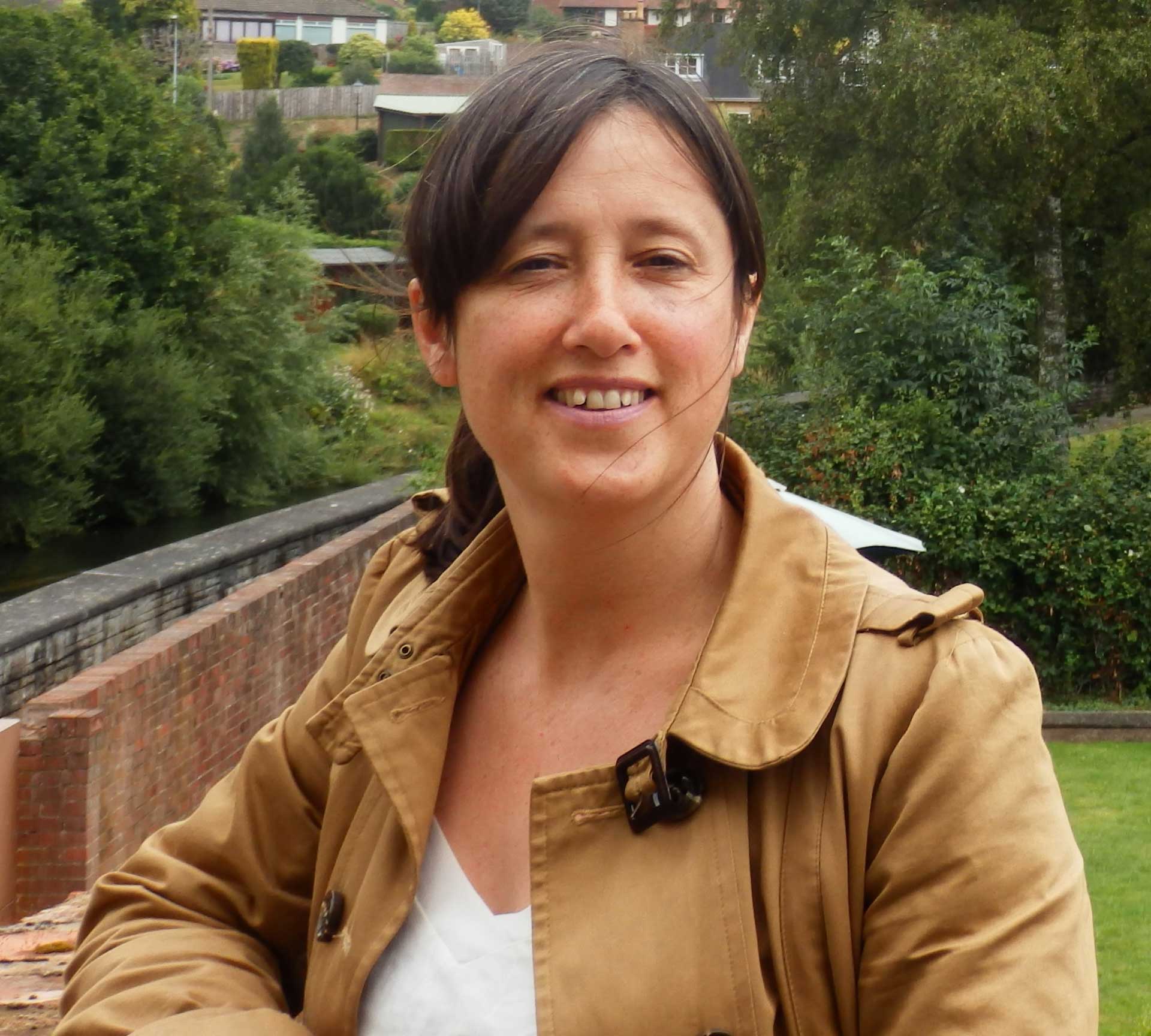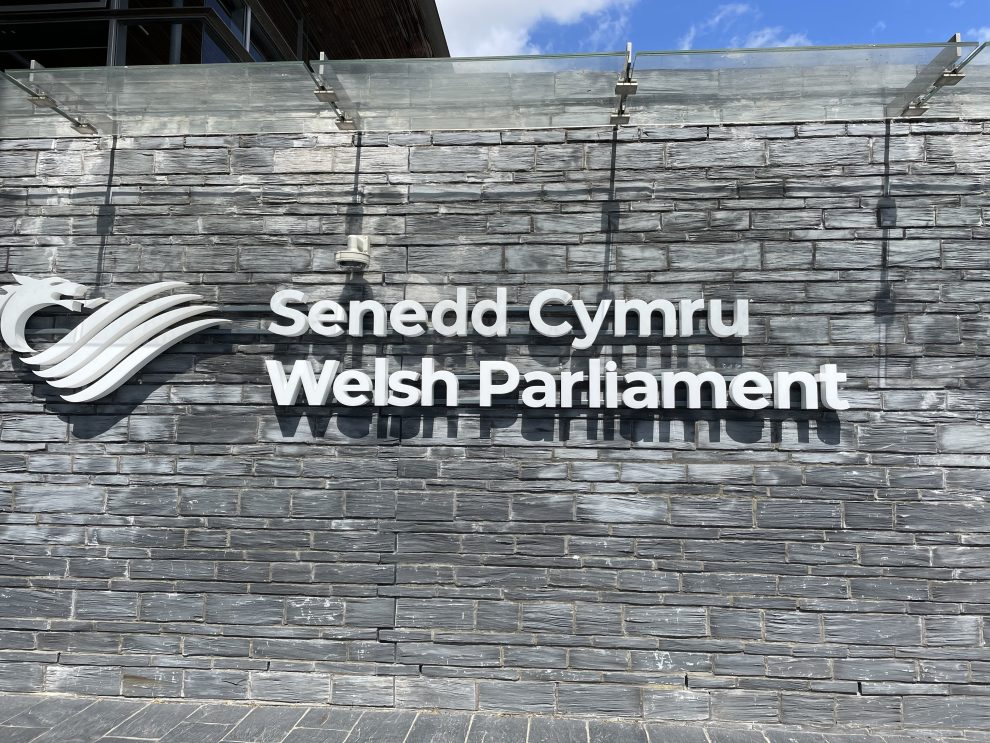Politics
Davies outlines Conservative education plans

Suzy Davies: Language skills are important for Welsh children
CONSERVATIVE Shadow Culture Minister Suzy Davies outlined her party’s plans to reform the Welsh education system at the Welsh Conservatives’ annual conference in Llangollen on Saturday (Mar 12).
Ms Davies said: “It doesn’t matter where you live in Wales. Everywhere, there is a genuine understanding that if we don’t get the economy right, then our public services cannot be at their best. After 17 years under Labour, we’ve seen how financial incompetence in government and too much risk aversion in our young population acts as a drag on our economy.
“So when we talk about excellence in education, it’s not just about the stats. It’s about helping people of all ages to become knowledgeable, ethical, creative, curious members of society who are hard wired to embrace responsibility for themselves and for those around them.
“Individuals who are confident enough to challenge inadequacy, to raise those around them and to understand that global and local are both part of the same outlook on life. When you leave a school in Wales, Welsh Conservatives believe that you should look at the world as your oyster and see Wales is the seed pearl.
“Experience the world with our blessing, live your life well, but if you feel the pull home, see Wales as an opportunity and use your experience to help that seed grow.
“It is not fanciful to say that Wales can make a very special offer to the world. This is a nation where we are not psychologically hemmed in by the parochialism of one language. We are a bilingual nation – cenedl dwyieithog – and we can be a trilingual nation with an education system that relishes different talents instead of squashing everyone into the same sausage skin.
“I know that compulsory Welsh in the curriculum has been a dismal experience for many of our young people. That is the fault of the system not the language. Excellence in education means changing the way pupils experience the Welsh language in school and pre-school, helping them understand the value and advantages that confident communication skills give you in the economy, local or global.
“Excellence in education means young children being inquisitive about a third language, in primary school, to play about with it, to recognise it for what it is – communication.
“However ambitious our plans for developing the teaching of science, technology, engineering and maths to help the Welsh economy, nothing is more valuable than one human being being able to communicate with another. And a linguistically agile Wales sends a clear signal to the world that we want to talk to you; we value you and your trade.
“Of course, the Welsh economy won’t flourish if people can’t play their part in it. Many of our multilingual go-getters of the future are still young children, yet to be born even. They need to be looked after while their equally important parents or carers fulfil their own potential and responsibilities by going out to work now.
“Conference, this week the Welsh Conservatives announced the very policy that would have made such a difference to me not so very long ago. The arrival of my children coincided with my early training as a solicitor. I needed to go to work to keep up with my training. I needed childcare. It was excellent.
It cost me more than I earned. We did it because my career would make up the money later but that’s not true for everyone. And women in particular don’t go back to work when they really want to because of problems with childcare. They miss out on career opportunities and, let’s face it, deprive Wales of a pretty valuable and impressive economic asset.
“So, this week, we announced that we would smash down that barrier to full parent participation in the economy, that barrier to equal opportunity – let’s not pretend here – and that barrier – for someone like me anyway – to dignity and sanity.
“We commit to giving you 30 hours free childcare, each week for 38 weeks, when and where you need it – not when and where you’re told to use it. A policy that helps families work – in both senses of the word.
“A policy that helps reduce the pay gap by letting women progress in employment. And a policy that creates new jobs for knowledgeable, ethical, creative, curious and valued childcare providers who, give us a few years, will themselves be the fruit borne of excellence in education.”
News
Too many children in Wales living in poverty – Lib Dems want action

THIS week in the Senedd, the Welsh Liberal Democrats renewed their demands for the implementation of child poverty targets.
According to a report from the Bevan foundation, 29% of children living in Wales are currently experiencing poverty (an estimated 190,000 children).
The same report highlighted that the largest percentage of children living in poverty are from working households or in couple households.
The Welsh Lib Dems are now renewing calls for the Welsh Government to create a set of targets for reducing child poverty, which the party argues will allow for more accountability.
The party has previously called for the implementation of targets, citing recommendations from the Calling Time on Child Poverty Report published in November last year.
Commenting, the Leader of the Welsh Liberal Democrats Jane Dodds MS said: “The latest statistics on childhood poverty in Wales paints a very distressing image of families across the country struggling to make ends meet.
Over the course of the last six years, the proportion of children in poverty has skyrocketed. Fuelled by worsening economic conditions and a complete lack of action from both governments in Westminster and Cardiff Bay.
We cannot act complacent about these figures nor accept the clear lack of progress in fighting child poverty, behind each statistic is a child that the state has failed.
It remains painfully clear that the Welsh Government is failing to make any meaningful progress in this fight, which is why they must follow through with the implementation of clear set targets that will allow for further accountability.
We as a party have continuously called for the creation of these targets and we will not be silenced. For the sake of future generations we urge the Welsh Government to listen.”
Education
Conservative calls for academies and free schools rejected by Senedd

THE SENEDD has rejected calls to introduce free schools and academies after a report found major challenges in Wales’ education system.
Tom Giffard led a Conservative debate on educational attainment, warning that Wales is consistently at the bottom of UK-wide league tables.
The party’s new shadow education secretary pointed to an Institute for Fiscal Studies (IFS) report on education in Wales which found low outcomes and high levels of inequality.
Mr Giffard told the Senedd the IFS report highlights the pitfalls of the Welsh Government putting all its eggs in the basket of a skills-based approach.
Criticising a failure to measure skills inequalities and pupil progress, he stressed that Wales’ lower performance is due to policy and approach rather than funding or the pandemic.
He said: “It seems the Welsh Government relies on Pisa results to tell the story but then, when those same results are all too disappointing, they are dismissed in equal measure.”
Mr Giffard, who previously worked in a primary school, said declines in Pisa results can be observed in almost every country that has adopted a skills-based approach.
Raising concerns about disappointing Pisa results, the South Wales West MS pointed out that Wales saw the lowest scores in the UK for every subject.
Heledd Fychan, Plaid Cymru’s shadow education secretary, warned that Wales’ schools are understaffed and facing difficult decisions due to budgets being at breaking point.
She criticised implementation of the Welsh Government’s additional learning needs (ALN) reforms, saying schools cannot realise the aims without the budget to bring them to life.
Ms Fychan said Plaid Cymru agreed with much of the Tory motion but her party would not support calls for free schools and academies.
Sam Rowlands described the IFS report as damning, warning that the Welsh Government’s education reforms have been disastrous and have widened inequality.
The Tory MS claimed the reforms are systematically holding back disadvantaged children, saying: “The most remarkable fact is that the performance of disadvantaged children in England is either above or similar to the average for all children in Wales.”
Mr Rowlands added: “The poorest in England’s schools are doing the same or better than the Welsh average, thanks to ambition, the academies and free schools.”
Samuel Kurtz, a fellow Tory, said free schools and academies have driven up standards in England as he argued a Wales roll-out provides an opportunity to improve outcomes.
James Evans, the Conservative MS for Brecon and Radnorshire, highlighted the party’s pledge to get 5,000 more teachers into Wales’ classrooms.
Buffy Williams, the newly elected chair of the Senedd’s education committee, said Wales is undergoing a profound transformation propelled by ALN and curriculum reforms.
The Labour MS for Rhondda stressed the importance of listening to teachers and allowing ample time for the reforms to take root in classrooms across Wales.
Altaf Hussain recounted a conversation he had this week with a headteacher at one of the largest schools in his South Wales West region.
The Conservative said: “The major improvements they have been delivering to attainment and addressing behavioural issues are all at risk because of cuts to funding.
“Vital work undertaken to improve the lives of young people with additional needs could be halted because they cannot afford to continue employing the support workers.”
Lynne Neagle recognised the scale and seriousness of work still ahead to improve Wales’ education system, stressing: “I am not, in any way, complacent about that task.”
Wales’ newly appointed education secretary, who takes over from Jeremy Miles, said sustained improvement in attainment will be among her top priorities.
She told the chamber: “My early focus has been to listen closely to schools and where it is clear that schools seek more scaffolding.”
Ms Neagle said the Welsh Government will work with trade unions and employers to reduce workload and eliminate unnecessary red tape.
The Conservative motion was voted down, 14-35, following the debate on April 24. The motion as amended by the Welsh Government was agreed, 26-23.
Climate
£1m turbine application to be decided by all councillors at County Hall

A TWICE-BACKED £1m scheme for a “20-storey-high” wind turbine at a Pembrokeshire mansion will have to be decided by all councillors.
Mr and Mrs Glen Peters of Western Solar Ltd are seeking permission for a single turbine on land near the Grade II-listed Rhosygilwen Mansion, which includes an arts and functions building known as Neuaddydderwen.
Members of the April meeting of Pembrokeshire County Council’s planning committee were recommended to refuse the scheme, despite backing it at their March meeting.
This backing meant the application returned to the April meeting for ratification after a ‘cooling off’ period; the application having been deferred at the January meeting pending a site visit.
It was initially recommended for refusal in January for several reasons, including potential harm to the setting of the Grade-II-listed house and grounds, and fears of threats to the safe operation of West Wales Airport at Aberporth in neighbouring Ceredigion, some 9.5 kilometres away.
The last concern was later withdrawn.
In papers ahead of the April meeting, officers, again recommending refusal, have said the scheme “would not protect or enhance the setting [of Rhosygilwen] but rather would result in significant harm to this interest of acknowledged importance”.
They have also warned any backing of the scheme against policy recommendations could set a precedent for similar developments.
-

 News7 days ago
News7 days agoPolice issue update on the search for Luke, missing from Pembroke Dock
-

 News2 days ago
News2 days agoPolice and air ambulances at ‘serious incident’ at West Wales school
-

 News6 days ago
News6 days ago20mph U-turn: Some roads will return to 30mph following public outcry
-

 Community6 days ago
Community6 days agoMiracle pup finds her forever home after heart-wrenching journey
-

 Crime2 days ago
Crime2 days agoPembrokeshire pensioner accused of 17 sexual offences against children
-

 Crime19 hours ago
Crime19 hours agoAll three school stabbing victims discharged from hospital, police confirm
-

 Community3 days ago
Community3 days agoCounty Hall to offer space for community banking
-

 Crime4 days ago
Crime4 days agoBrian Davis: Wanted on suspicion of commercial burglary






















